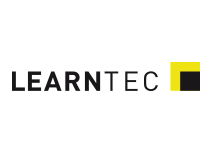A deep dive into the evolution of AI in education
Dr. Philippa Hardman, a globally recognized expert in artificial intelligence and learning design, is set to deliver a highly anticipated keynote at LEARNTEC 2025.
Titled "AI & Digital Learning: Past Experiments, Present Impact & Future Possibilities," Dr. Hardman’s presentation will offer a deep dive into the evolution of AI in education, tracing its 60-year journey from early experimental applications to the transformative rise of generative AI in recent years. This keynote promises to be a thought-provoking exploration of AI’s potential to address longstanding challenges in education while critically examining its current limitations.
At the heart of Dr. Hardman’s keynote is the concept of the "impact paradox." This phenomenon highlights a troubling trend: while AI adoption has surged across educational sectors, the quality of outcomes—particularly for complex tasks—has stagnated or even declined. Dr. Hardman attributes this paradox to a widespread "faster horses" mentality, where AI is primarily used to accelerate existing processes rather than fundamentally improving them. For example, tools like Synthesia and Smartcat are being leveraged to create videos and translate training materials faster and cheaper than ever before. While these applications undoubtedly increase efficiency, they often fail to address deeper issues such as learning transfer, engagement, and real-world impact.
Dr. Hardman will challenge educators and L&D professionals to rethink their approach to AI by considering its strategic potential beyond speed and cost benefits. Drawing on research that suggests 60-90% of training fails to deliver meaningful impact on the ground, she will argue that scaling ineffective systems faster only perpetuates inefficiencies. Instead, she advocates for using AI as a tool for transformation—one that can elevate the quality of learning experiences and address systemic challenges such as equity, accessibility, and personalization.
The keynote will also explore how forward-thinking organizations are beginning to push the boundaries of AI innovation in learning design. Dr. Hardman will provide analytical insights into emerging trends, such as using AI to scale evidence-based approaches to training design, personalize learning paths at scale, and extract actionable insights from workplace data. For instance, some organizations are leveraging semantic analyses of employee communication platforms like Slack to identify skill gaps and align training initiatives with business objectives. Others are using AI-powered simulations to enhance experiential learning or deploying adaptive algorithms to tailor content for individual learners based on their unique needs and contexts.
Dr. Hardman will emphasize that while these innovations represent significant progress, they also raise critical questions about the role of human agency in educational transformation. She will argue that successful deployment of AI depends not only on technological advancements but also on human creativity, ethical oversight, and strategic vision. This perspective aligns with her broader mission as the creator of DOMS™, an AI-powered learning design engine that bridges the gap between learning science and educational practice.
A key analytical focus of the keynote will be AI’s untapped potential to address fundamental challenges in education—particularly equity and quality. Dr. Hardman will examine how AI can democratize access to high-quality learning experiences by scaling expertise across global teams and personalizing content for diverse learners. She will also discuss how AI can help organizations move beyond generic solutions by recommending optimal strategies rather than average ones—a shift that could redefine standards for excellence in education.
Dr. Hardman’s keynote promises to be both intellectually stimulating and practically actionable for educators across HR, L&D, K-12, and higher education sectors. Attendees can expect a rich blend of historical context, real-world case studies, and forward-looking strategies that illuminate AI’s transformative potential while critically evaluating its current applications. By drawing connections between past experiments, present practices, and future possibilities, Dr. Hardman aims to inspire her audience to think more strategically about how they use AI—and why human-centered design must remain at the core of educational innovation.
Ultimately, Dr. Hardman’s message is clear: while AI has the power to revolutionize learning design and delivery, its success depends as much on people as it does on technology. As educators grapple with the opportunities and challenges presented by AI, her keynote will serve as a vital guide for navigating this rapidly evolving landscape with insight, intention, and integrity.
Join Dr. Philippa Hardman at LEARNTEC 2025 for an unparalleled exploration of how strategic deployment of AI can create meaningful change in education—and why the future of learning depends on striking the right balance between technological innovation and human ingenuity.

